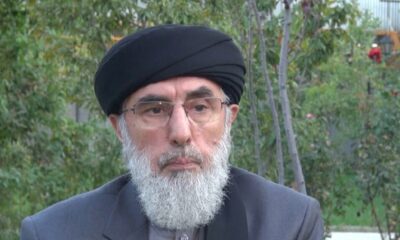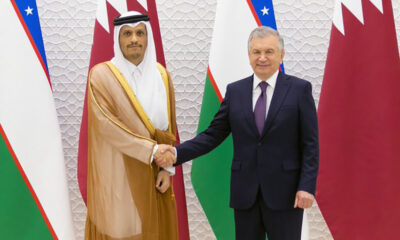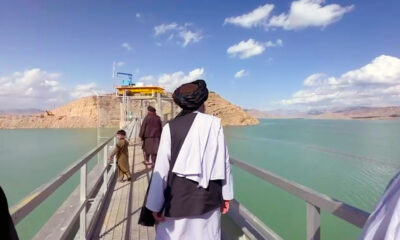Latest News
Helmand farmers concerned about lack of water
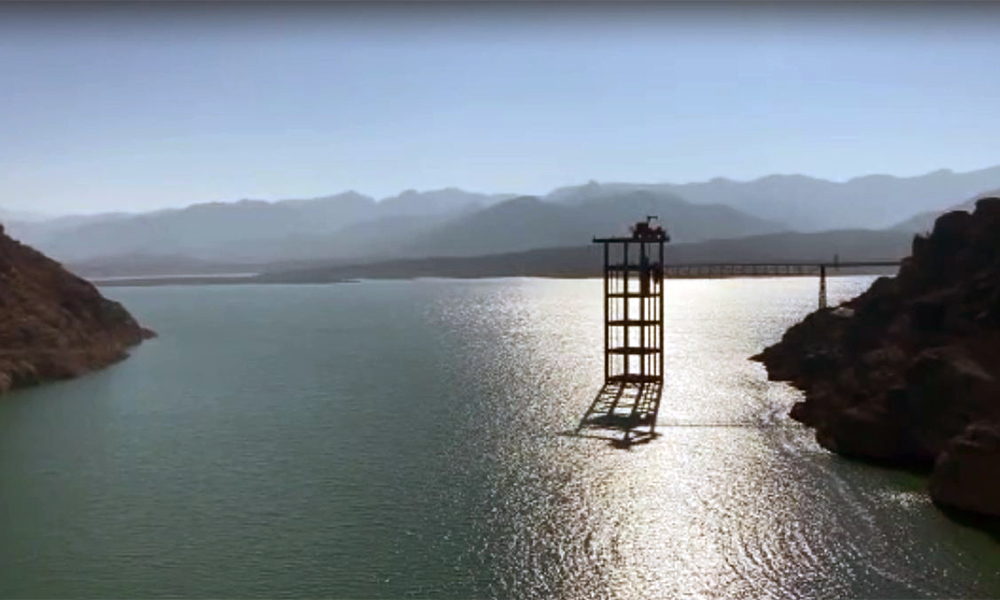
A number of farmers around Kajaki Dam in Helmand province say their agricultural land and gardens are drying up due to the lack of water.
The farmers have called on the government to manage the Helmand River water so that water reaches their fields.
“We are facing a water shortage. We are in dire need of water and we use a water pump. While the water is not enough for us, how can we give water to Iran?” asked Abdul Jabbar, a farmer in Helmand.
“We can give water to Iran only if our water increases or if our dam stores enough water to meet our needs,” Shah Wali, another farmer in Helmand, said.
This comes after Iran’s warnings last month about the lack of water from the Helmand River feeding into Iran. They accused the Islamic Emirate of blocking the water flow and of violating a 1973 water treaty.
The Islamic Emirate has repeatedly said it is committed to the treaty but that there is not enough water to supply Iran.
“According to the 1973 treaty, we have given the Islamic Republic of Iran its share of water from the Helmand River, and we are committed to the treaty in the future. The regular meetings of the commissaries of the Islamic Emirate of Afghanistan and the Islamic Republic of Iran are held as usual. These issues will be discussed in a friendly atmosphere and the normal and abnormal water year will be determined,” Matiullah Abid, the spokesperson of the Ministry of Energy and Water, said.
The complaints of farmers in Helmand province about the lack of water suggest that climate change has had a negative impact on Afghanistan, therefore experts say that it is the responsibility of governments to address people’s concerns by formulating long-term plans.
Latest News
Media Violation Commission bans two TV channels

The Media Violations Commission has ordered Noor and Barya TV channels to stop broadcasting and to appear in court, state-run Bakhtar News Agency reported on Tuesday.
ّIt is said that the decision against the channels was taken for “not observing the principles of journalism.”
Latest News
Hekmatyar slams US for ‘occupying’ Afghanistan’s airspace
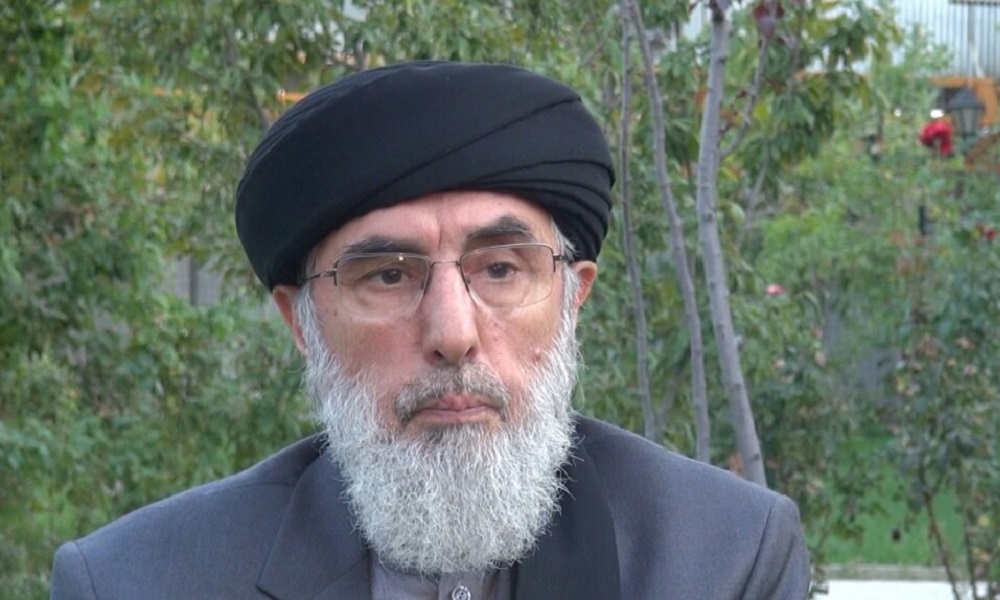
Former Jihadi leader Gulbuddin Hekmatyar has criticized the United States for patrolling Afghanistan’s airspace with drones.
Hekmatyar said in a speech Tuesday that any form of American presence in Afghanistan is unacceptable.
“Afghanistan’s airspace is under occupation. Expressing this issue is our religious responsibility. We have sacrificed the most for freedom. We do not accept any presence of America. We do not accept any kind of foreign rule,” he said.
Hekmatyar also stated that there is a possibility of American troops entering the country again.
“[Former] President Trump’s national security advisor says that their departure was a mistake and that they should return. This is not an ordinary issue. The possibility that they will make a mistake again and return to Afghanistan is very strong,” he said.
The Islamic Emirate has not commented so far on Hekmatyar’s remarks, but it has confirmed sightings of drones over Afghanistan.
“It is required that the respected officials of the caretaker government give explanations on this matter and respond to the concerns of the Afghan people in this matter, because important and great national issues are important for every Afghan citizen and if there is a problem, it will be a cause of concern for everyone,” said Fazl-ul-Hadi Wazin, a university lecturer.
Latest News
Uzbek and Qatari leaders discuss Trans-Afghan Railway project
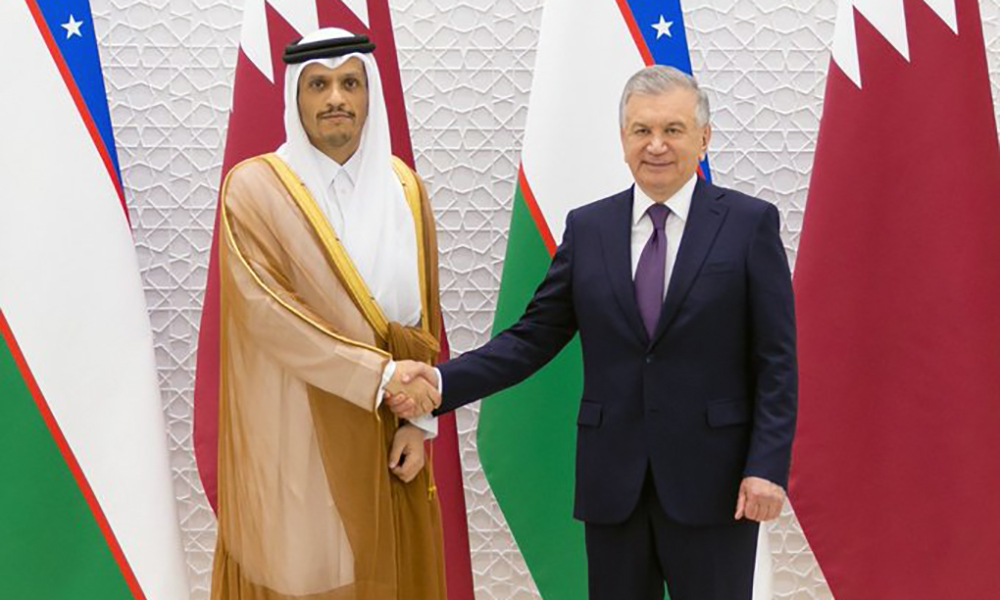
Uzbekistan’s President Shavkat Mirziyoyev on Monday met with Qatar’s Prime Minister and Foreign Minister Sheikh Mohammed bin Abdulrahman Al Thani for talks on a number of issues including the Trans-Afghan Railway project.
The two leaders also discussed bilateral trade issues, strengthening of relations and regional matters, including the escalating situation in the Middle East.
In October 2023, Uzbekistan Railways JSC presented the Trans-Afghan Railway project to Qatar’s Ministry of Transport.
Subsequently, deliberations were held on Qatar’s involvement in the project’s execution.
In February 2021, Uzbekistan, Afghanistan, and Pakistan signed a roadmap for the Termez-Mazar-i-Sharif-Kabul-Peshawar railway construction.
The envisioned transport corridor, estimated at approximately $5 billion, aims to connect Europe, Russia, Uzbekistan, Afghanistan, Pakistan, India, and Southeast Asian nations, boasting a transit capacity of up to 20 million tons of cargo.
-
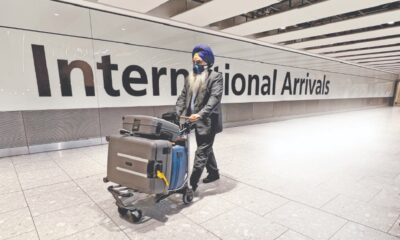
 Regional4 days ago
Regional4 days agoIndian foreign ministry advises against travel to Iran, Israel
-

 Latest News4 days ago
Latest News4 days agoAfghanistan withdrawal probe sparks anxiety within Biden administration: US’s McCaul
-

 Latest News3 days ago
Latest News3 days agoTop former US general claims Daesh-Khorasan is ‘on the upswing’
-

 Latest News4 days ago
Latest News4 days agoLightning strikes in Helmand kill one, injure three
-
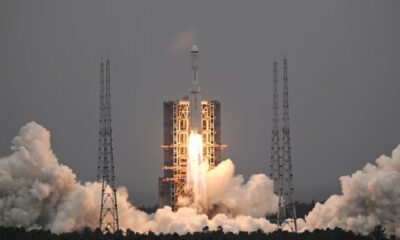
 Science & Technology4 days ago
Science & Technology4 days agoChina launch of relay satellite Queqiao-2 for lunar probe mission successful
-
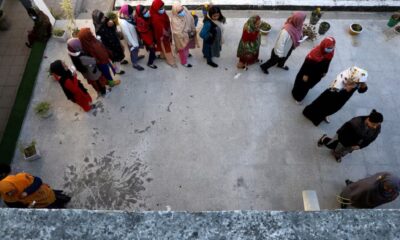
 World5 days ago
World5 days agoVoters in many countries sceptical of democracy, poll shows
-
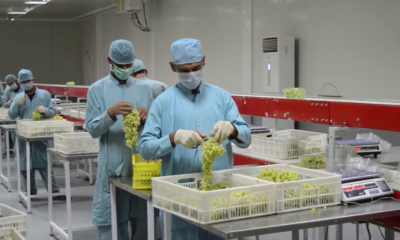
 Business3 days ago
Business3 days agoAfghanistan reaches self-sufficiency in production of 133 items: MoIC
-
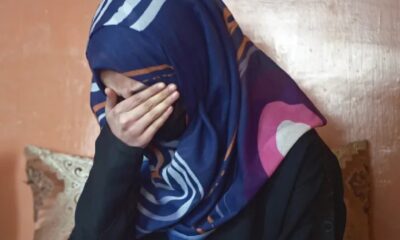
 Health3 days ago
Health3 days agoMajority of Afghans with mental disorders are women: officials




